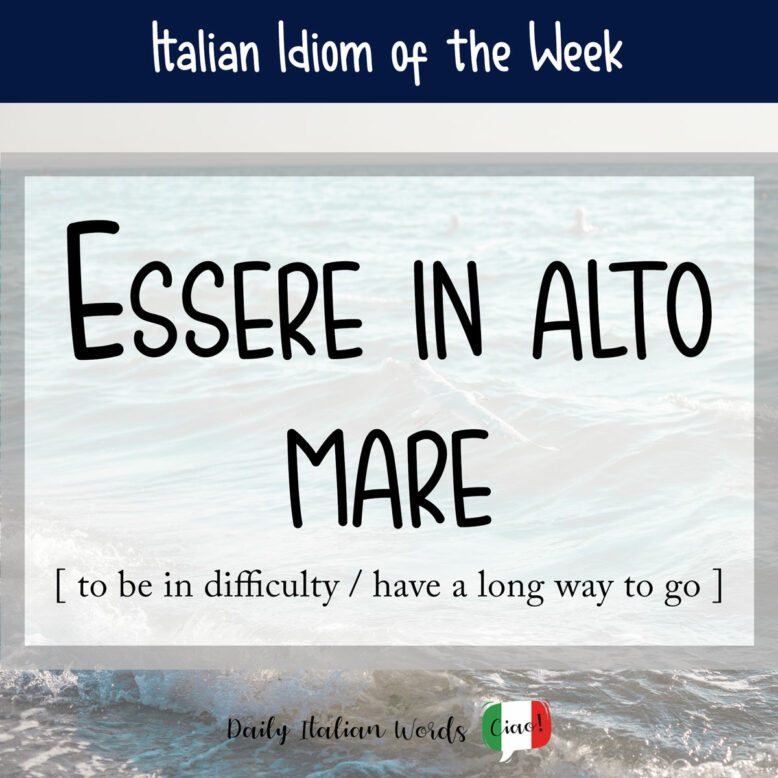Imagine you find yourself adrift on a choppy sea in the middle of nowhere, with no means to call for help. It’s from this vivid image that we get the Italian idiom essere in alto mare, which literally translates to “to be on the high seas” in English.
essere in alto mare
to be in difficulty / to have a long way to go

This expression is used to describe a situation where someone is far from resolving a problem or completing a project, akin to being lost at sea with no land in sight.
For example, picture yourself on the brink of moving to a new house. While most things are moving along as planned, you’ve hit a snag in the closing process and uncovered some unexpected repairs that need attention. You’re optimistic that you’ll be settled into your new home by the end of the year, but you’re also aware that there’s still quite a journey ahead before that happens. In this case, you can use essere in alto mare to describe your situation.
Con il progetto sono ancora in alto mare.
I’ve still got a long way to go with the project.
Of course, the expression in alto mare can also be used literally to refer to a boat or ship that is far away from the shore.
La nave è in alto mare.
The ship is on the high seas.
One of Italian singer Loredana Bertè’s most popular hits is called In alto mare. If you have a few minutes to spare, why not give it a listen?
Heather Broster is a graduate with honours in linguistics from the University of Western Ontario. She is an aspiring polyglot, proficient in English and Italian, as well as Japanese, Welsh, and French to varying degrees of fluency. Originally from Toronto, Heather has resided in various countries, notably Italy for a period of six years. Her primary focus lies in the fields of language acquisition, education, and bilingual instruction.


